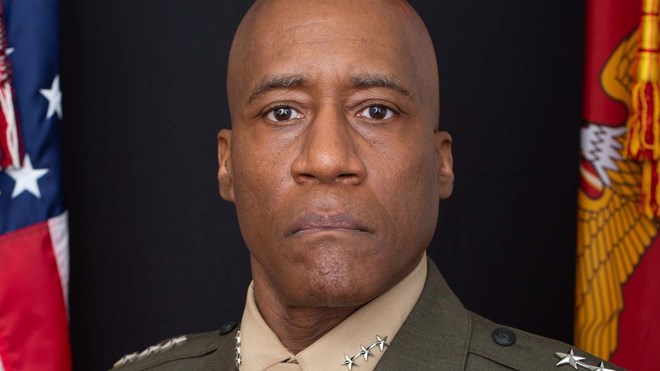Mogadishu (KAAB TV) — The Stars and Stripes newspaper has reported that mounting concerns over terrorist activity—particularly from ISIS (Daesh) in West Africa—and the worsening security situation in Somalia have prompted the U.S. Department of Defense (Pentagon) to re-evaluate its military strategy in Africa.
General Michael Langley, commander of U.S. Africa Command (AFRICOM), highlighted that extremist groups operating in the Sahel region have expanded significantly over the past three years. He warned that if left unchecked, these groups could eventually gain the capability to launch attacks on American soil.
While General Langley stopped short of confirming a drawdown of U.S. forces on the continent, he emphasized that African security forces must ultimately take full responsibility for maintaining stability in the region.
“Our strategy is rooted in partnership,” Langley said. “The goal is shared security for our nations and our allies. It’s about building sustainable capacity—not dependency. This is an investment in Africa’s ability to solve its own problems.”
A U.S. Navy general, Langley has led AFRICOM since 2022. He described the Sahel as the current “epicenter” of terrorism in Africa, pointing to heightened activity from both Al-Qaeda and ISIS in countries such as Burkina Faso, Mali, Niger, and Nigeria.
“One of the terrorists’ evolving objectives is to establish a coastal corridor through West Africa,” Langley told reporters, warning that such a development could significantly heighten the threat of attacks against the United States.
He also expressed concern that the U.S. has lost some capacity to monitor terrorist operations in Africa effectively.
General Langley made these remarks following a high-level security meeting last Friday in Nairobi, Kenya, where he met with African military leaders to assess the continent’s security challenges.
Turning to Somalia, Langley revealed that AFRICOM has doubled its airstrikes in the country this year, conducting more than 25 operations—exceeding last year’s total. However, he cautioned that military action alone is insufficient.
“A lasting victory requires more than firepower. It demands a comprehensive approach that addresses the root causes of instability,” he said.
